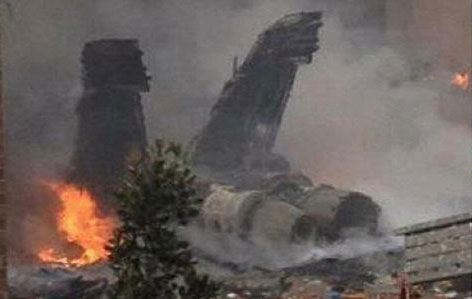
Kabul, September 20: After Taliban gunmen destroyed eight Harrier jets at a US camp in Helmand Province, the US military has suffered its worst air loss in one day since the Vietnam War.
The Taliban attacked Camp Bastion, the main strategic base in southwestern Afghanistan, on Sept. 14, causing $200 million in damage in the single most destructive strike on a Western base during the war, according to military officials.
Two Marines were killed, nine coalition personnel were wounded and six jets costing between $23 million and $30 million were completely destroyed.
The approximately 15 insurgents, dressed in US Army uniforms, had penetrated the base Friday night and instantly began shooting and setting fire to parked Navy-AV-8B Harrier jets when they were inside. Three refueling stations were severely damaged during the attack.
“It was a running gun battle for a while, two and a half hours, nonetheless they were able to get to the aircraft before we could intercept them,” a military official told the New York Times. Using machine guns, rocket propelled grenades and possibly mortars, most of the aircrafts were demolished.
After a drawn-out nighttime battle that made it hard to see the enemy, all but one of the Taliban fighters were killed. The remaining insurgent is now in military custody.
Camp Bastion is one of the largest and best-defended posts in Afghanistan, making it troubling that the attackers were able to inflict so much damage.
“We're saying it's a very sophisticated attack,” a military official told the Times. “We've lost aircraft in battle, but nothing like this.”
The Taliban made a statement blaming the attack on the anti-Muslim video that sparked outrage in the Arab world. But Wahid Mujda, an Afghan analyst who tracks the Taliban, told the Times that an attack as sophisticated as this one took a lot of planning and training, thereby being unrelated to the release of the video.
“I do not think that the Camp Bastion attack had anything to do with the anti-Prophet movie,” he said. “Given the sophistication of the attack one can say with a lot of confidence that the Taliban had been training, rehearsing and preparing for weeks and even months. Everything was not planned and decided overnight.”
The detrimental attack comes after nearly 10,000 American Marines have left Helmand Province over the past several months, now that the offensive is over. But more coalition service members have died this year in Afghanistan. After Friday's attack, four more service members were killed on Sunday in Zabul Province, bringing the total number of deaths this year to 51. Last year, 35 were killed as a result of this type of violence.
And as US involvement in Afghanistan trickles down, the Taliban has left its mark on the highest security base with the most destructive attack in the region in 11 years.





Comments
Add new comment